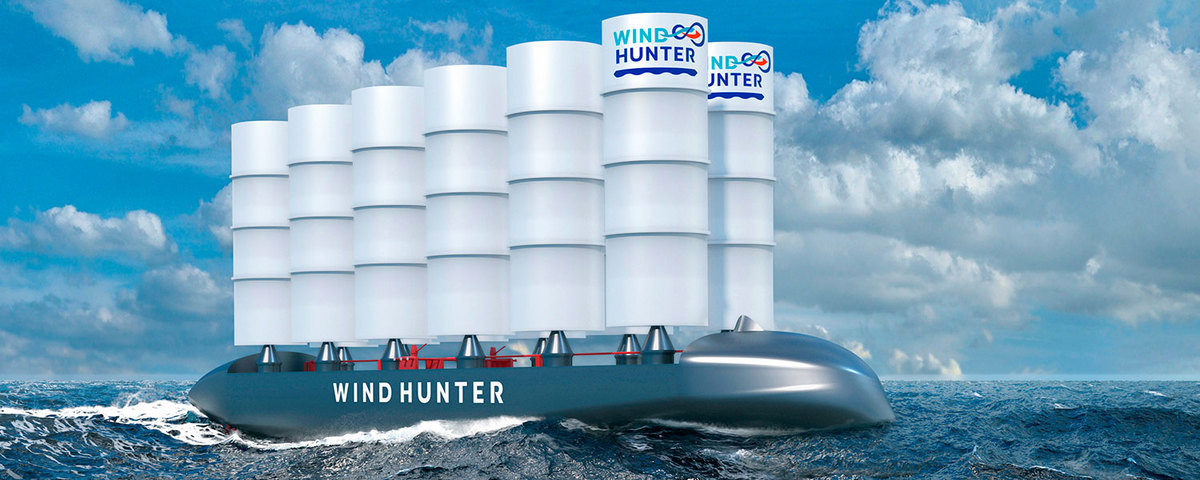The Week in Alt Fuels: The burden of global leadership
Faced with the twin burdens of high costs and risks of innovation, shipping industry leaders may hesitate to act, potentially slowing the shipping sector’s global green transition.
 CONCEPT: MOL's Wind Hunter concept, which is a vessel designed to be a hydrogen-production plant. Mitsui O.S.K. Lines
CONCEPT: MOL's Wind Hunter concept, which is a vessel designed to be a hydrogen-production plant. Mitsui O.S.K. Lines
Takeshi Hashimoto, chief executive of Mitsui O.S.K. Lines (MOL), recently cautioned against moving "too far ahead of others" in the race to decarbonise the shipping industry. In his New Year statement, the head of Japanese shipping major stressed the need for collective action with “like-minded partners,” particularly at a time when enthusiasm for climate action is waning and the adoption of fuels with zero- and low-emission potential, such as hydrogen, biofuels and other green alternatives, remains challenging.
Hashimoto’s tempered stance contrasts with his position from January 2024, when he championed a more ambitious approach, asserting that first movers could "set the trend" once policies were backed by data.
Hashimoto is not alone in raising concerns about first-mover disadvantages. Vincent Clerc, chief executive of Danish shipping giant A.P. Moller-Maersk, told the Financial Times last September that European companies face a regulatory void that encourages delay. “Some of the first movers have had first-mover disadvantage,” Clerc remarked, highlighting the EU’s lack of incentives to foster “champions.” He called for subsidies, similar to those in the US and China, to ease the high costs and risks of decarbonisation.
First movers in shipping are burdened by significant risks in an uncertain regulatory and economic environment. Shipowners face steep capital expenditures to retrofit vessels or build new ones capable of running on alternative fuels, along with prohibitively high operational costs for bunkering green hydrogen and its derivatives, which are far costlier than fossil fuels.
For suppliers, the situation is compounded by limited technological advancements that constrain the scalability and viability of green fuels. High production costs drive up prices, making these alternatives less competitive in a market where fossil fuels remain cheaper and more readily available.
Regional bodies like the EU regulate maritime greenhouse gas emissions, but an absence of standardised global guidelines for adopting new technologies adds to the uncertainty. With no global-level incentives from the IMO expected until at least 2027, suppliers and cargo owners are tasked with stimulating demand, while shipowners shoulder the transition costs, all within an environment already marked by fragile investor confidence.
There have already been casualties in Europe. Danish wind major Ørsted shelved its flagship project to supply green methanol for bunkering. Norwegian fertiliser giant Yara has abandoned two of its green hydrogen plants in Porsgrunn, Norway and Sluiskil, Netherlands. Fuel cell manufacturer TECO 2030, once seen as a promising pioneer in the marine fuel cell segment, also filed for bankruptcy last year.
The challenges faced by first movers underscore the need for stronger regulations and global cooperation. Without these, the shipping industry risks an uneven transition. If major companies hesitate to take the first steps, it could create a ripple effect that discourages smaller players from even attempting the shift.
In other news this week, Norwegian shipbuilder Vard and its partners are studying the feasibility of using fourth-generation nuclear reactor technologies for marine propulsion. The consortium selected three reactor technologies, each developed by a different nuclear tech firm. One of the technologies will now be further tested to determine whether it can be used for marine propulsion as part of the project.
LNG bunker supplier Monjasa bunkered a cruise ship with 3,000 cbm (1,215 mt) of liquefied natural gas (LNG) in Dubai, UAE. The bunker operation was conducted at the Dubai Harbour Cruise Terminal B. This was the first LNG bunkering in the UAE and the wider Middle East region, Monjasa said.
Luxury vehicle manufacturer JLR will purchase emission reductions from Norwegian shipping company United European Car Carriers (UECC). UECC will bunker five of its LNG-capable vessels with liquid biomethane (LBM), the company said. It will then allocate emission reductions equivalent to shipments made on the LBM-fuelled vessels to JLR through mass balancing, which works even if the automaker’s actual shipments are made on fossil-fuelled vessels.
By Konica Bhatt
Please get in touch with comments or additional info to news@engine.online






